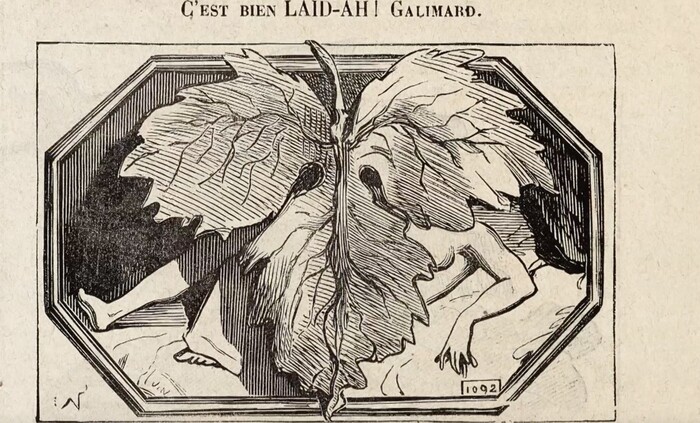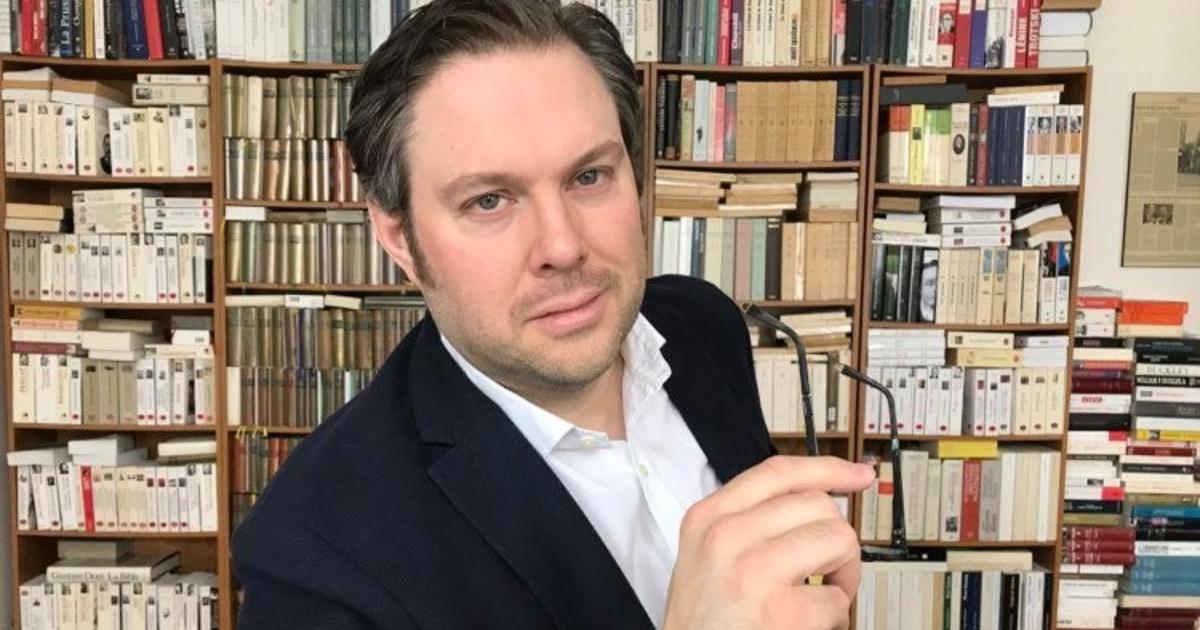It all started from a tunnel.
Or rather her name: at the beginning of March, the Leopold II tunnel, the longest in Belgium, was renamed Annie Cordy in homage to the Belgian performer of "Tata Yoyo", who died six months earlier.
She stood out among 15 candidates, following a citizen vote on the Internet.
The approach offers two advantages in Brussels: feminize the public space and put an end to the controversy linked to the controversial figure of King Leopold II, whose reign is marked by the colonial enterprise.
Ironically, this decision gave rise to another, more unexpected controversy: the “spirit of song” Cho Ka Ka O irritates Mireille-Tsheusi Robert, president of BAMKO, a feminist institute for reflection and action on anti-black racism, which denounced this choice on the Belgian channel RTL-TVI.
Like her, other activists took the floor to criticize this new name, effective in the fall.
“We are convinced that there are many figures of the Brussels heritage and feminists who have not had problematic actions or comments, reacted on the same channel Appoline Vranken, a feminist activist.
So, indeed, we are questioning that choice a little.
"
READ ALSO>
Controversy in Belgium: "Chaud Ka Ka O", the tube of Annie Cordy, accused of racism
An opinion shared in part by Isabelle Saporta, literary director at Fayard.
“From the moment we rename a tunnel specifically for this passive, we probably had to choose a name that was completely consensus.
Associations have unearthed the choreography of Cho Ka Ka O. I watched it and indeed, even if it was another time and other customs, it conveys racist stereotypes and sexist clichés.
They are all made up in black, we see big red lips ... I am delighted that today, this kind of song is no longer possible.
But I am not sure that the controversy is worth the trouble, Annie Cordy is hyper popular, she is a star in Belgium ”, nuance the editorialist.
Quickly, thousands of Internet users were moved on social networks to see the work of Annie Cordy marred by such accusations, speaking of "obsession to see imaginary racism" or "ridiculous controversy".
Critics are virulent: "After Annie Cordy, I think they will
cancel
Carlos for
Big kisses
, then they will pass on Pierre Perret for
Le zizi
", we can read on Twitter.
What is cancel culture?
"Cancel"?
It is in fact a reference to the phenomenon of "cancel culture" (the culture of cancellation, of erasure, in French), born in the United States.
It is about withdrawing support from public figures or businesses after they have done or said something potentially wrong or offensive.
A moral sanction which sometimes leads to the withdrawal of a work.
What is also sometimes called “call out culture” has social networks as its main playground, sometimes in the form of group harassment.
Newsletter The list of our desires
Our favorites for fun and culture.
Subscribe to the newsletterAll newsletters
The spread of this phrase is commonly attributed to “Black Twitter” (the black community on Twitter) in the mid-2010s, who often used it on issues of discrimination and racism.
But “cancel culture” has really permeated public consciousness with the #MeToo movement.
Personalities such as R. Kelly or Harvey Weinstein (convicted of rape) have thus been "
canceled
", as have many cinematographic and literary works,
Gone with the Wind
at
Dix Petits Nègres
.
READ ALSO>
Paris: feminists block a cinema before the broadcast of "J'accuse" by Polanski
Should we go as far as "erasure"?
For Isabelle Saporta, cancel culture is a serious mistake.
“Erasure doesn't make sense.
History is to recontextualize.
What does a work of its time tell?
We have to face it.
Wanting to erase the wanderings and horrors of one's past is dangerous for the future.
If you can't even see them anymore, then they might repeat themselves.
And to understand is not to excuse.
"
# AnnieCordy "Cho Ka Ka O", racist?
🗣️💬 @isabellesaporta: “The song conveys racist stereotypes and is in absolute bad taste and appalling!” # GGRMC pic.twitter.com/ElBOV4kVkr
- Les Grandes Gueules (@GG_RMC) March 16, 2021
Some ardent defenders of culture fell from the clouds in the face of this little controversy, which recalls that of Pépé le Putois, a few days earlier.
“Deleting characters doesn't solve anything.
It is a question of putting them in their context, and allowing to judge of them for oneself, assures Isabelle Alonso, writer and feminist activist.
In addition, Pépé le Putois is funny, but it stinks!
The stalker stinks.
He is not a role model, not a hero!
Removing it doesn't remove the harassment, just its representation.
"
"The last resort of an exasperated population"
For the historian Laure Murat, author of a column in
Le Monde on the issue, the "cancel culture" is a tool of political contestation that is part of "the fight for civil rights and feminism, exasperated by the impunity of power and the passivity of institutions in the face of racism, 'social injustice, sexism, homophobia, transphobia, among others'.
Social networks and media are becoming the site of a battlefield.
"It's a cultural war," she notes.
According to this professor of literature at the University of California at Los Angeles (UCLA), this practice is above all the "last resort of an exasperated, marginalized population with no voice or power other than the Internet".
Mehdi-Thomas Allal, lecturer at Sciences-po, also sees it as an expression of fed up.
"We would perhaps not feel so offended if there weren't so much racism," observes the author of
Les discriminations
.
The climate is not calm enough to laugh at everything.
When you see the Zecler affair, the facial checks, the rampant Islamophobia, you don't want to laugh.
Cancel culture is the weapon of the weak: those who do not have the means to go to court use social networks to blacklist, repudiate.
"
"I don't think Annie Cordy is part of the Ku Klux Klan…"
But by dint of ukases, the phenomenon is attracting more and more criticism today.
The director of the Rond-Point theater Jean-Michel Ribes detects in this excessive phenomenon "something right".
Because certain cultural testimonies, whatever the time, remain “very shocking”.
Despite everything, the playwright remains firmly convinced that when it comes to culture, nothing should ever be eradicated.
“It's a form of censorship.
As if all of a sudden, because it's horrible, everything related to the Shoah was deleted.
It is vile, but humans must remember that they are vile.
I find it more interesting to have a heritage of shocking things, and to counter one work of art with another work of art.
"
And when it is not the work that is questioned, it is its author.
“The perverse effect is that under the guise of denouncing an injustice, we end up lynching a person, castigates Yannick Chatelain, researcher in social sciences and specialist in social networks.
Quickly, it can become an attack on freedom of expression.
Not to mention that those who do not position themselves in such a controversy are also accused of endorsing.
"
The author of "Say you saw yourself when you tweet!"
"Continues:" We are delirious.
By dint of seeing evil everywhere, there is a form of revisionism of everything that has existed.
I don't think Annie Cordy is part of the Ku Klux Klan… Tact in daring is knowing how far you can go too far, ”concludes Yannick Chatelain, with a joke borrowed from Jean Cocteau.
"Cancel culture does not exist"
According to anti-racist and feminist activist Rokhaya Diallo, the culture of erasure simply does not exist: this movement is more akin to boycott, an old militant tool.
“I don't think careers have been broken because of the cancel culture.
It is of the order of the fantasy ”, justifies the journalist.
For her, it is not a question of censorship, but on the contrary of taking into account all sensitivities.
“Censorship would strike Annie Cordy's discography, but that's not the case.
She is a Belgian woman born in 1928, she is the product of the colonialist era that she lived.
But Annie Cordy is full of things, we must not make her disappear from the cultural landscape.
"
On the other hand, the writer sees no problem with the disappearance of Pépé le Putois in the next film "Space Jam 2" and the Looney Tunes.
" What does it change ?
This is not fundamental, especially since everyone had forgotten it before this controversy.
In reality, there is no loss.
He hasn't disappeared, but he won't be in a movie.
If Warner Bros. considers that it does not embody its values, it is its right.
"
When she was a child, this cartoon character already bothered her.
She remembers the "permanent discomfort" on the face of the female skunk assailed by Grandpa's advances, which she felt by proxy.
And the work on the evolution of the character, as suggested by Anne-Sophie Coppin
(see the video below)
, an academic specializing in feminist issues, would make no sense according to Rokhaya Diallo.
“All the comic spring of the character is linked to this harassment so if we rewrite it, it's not him anymore.
"
VIDEO.
Pépé le Putois accused of sexism: "It would have been very interesting to develop this character"
And does the term itself make sense?
From a semantic point of view, the "ideological project underlying the term cancel culture" is already problematic, believes the semiolinguist Elodie Mielczareck.
A culture does not cancel itself out, it is lived.
History is not concepts, it is lives.
By definition, you can't undo that.
"















